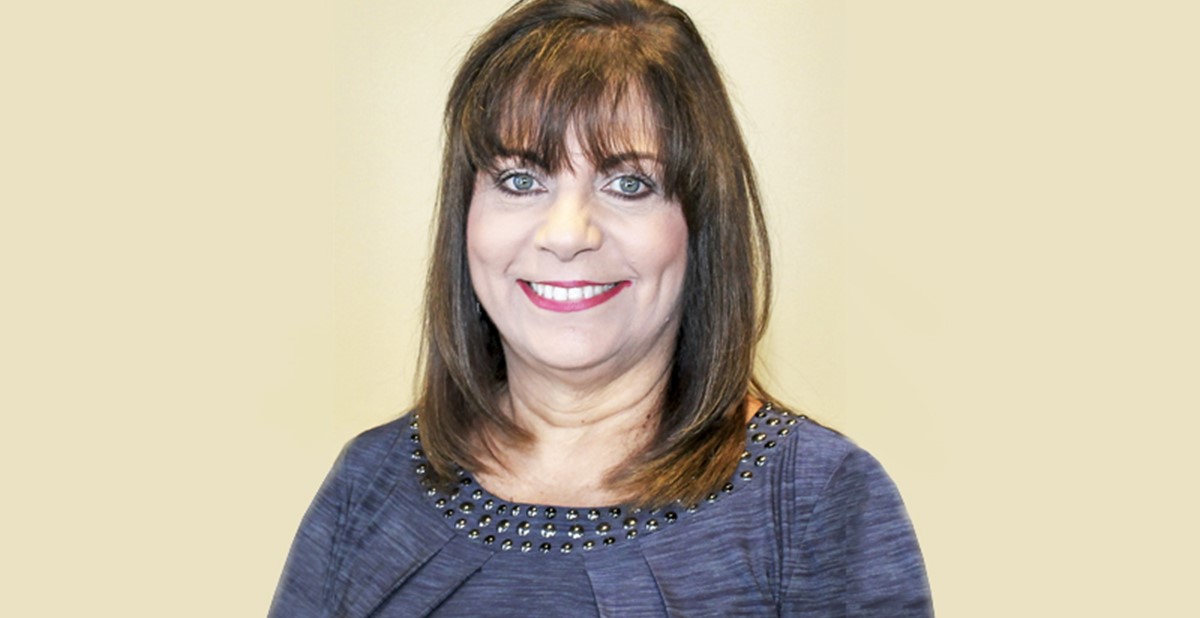Close Up: Brenda Angelini, MAS

Making Kindness Cool
At age 20, Brenda Angelini, MAS, learned one of her greatest lessons when she started her first job as a flight attendant with United Airlines: no matter what is going on in your life, when you walk in the door at work, you put a smile on your face. She has used that same determination and positivity to propel herself into the entrepreneurial world.
Angelini’s first foray into business ownership was a ladies’ clothing boutique in Houston, which she opened in response to her love for fashion and sales. She sold the boutique several years later to try her hand as a fashion expert and personal shopper at Macy’s, and then sold Yellow Page advertising for Southwestern Bell. Although she was the No. 1 salesperson in the U.S., she made the decision to leave so she could go back in business for herself again.
What led you to the promotional products industry?
I was looking for ideas to start a business in Entrepreneur magazine, when I saw an ad for a large industry distributor and I went to their discovery day. I didn’t really know what promotional products were, but I was excited about the opportunity and felt like my background in sales and fashion would be a good fit. I decided to go all in and bought a franchise. That was almost 20 years ago.
What was your vision for the business, and how has that vision changed over the years?
Immediately after my training, I set three goals: get certified, sell $1 million in products and win a [PPAI] Pyramid Award. So far, I’ve achieved two of them. I earned my CAS and then my MAS because I saw the importance of being knowledgeable and credible. I also succeeded in reaching the $1 million mark. But the Pyramid Award continues to elude me—maybe this will be my year.
As the business evolves, my goal is to foster growth. In 2010, I decided to join Proforma. I saw the opportunity to offer more products and services that would meet my client’s needs. I knew utilizing Proforma’s outstanding marketing and recruiting programs would help me to expand.
I started out as a one-woman shop, but now we have an office manager, two customer service reps and four salespeople. Over the past 12 years, I’ve acquired four other promotional products companies, and I plan to buy more. My next goal is to make the Multi-Million Club at Proforma.
How do you differentiate yourself in the industry?
The atmosphere in our office is consistently upbeat, helpful and generous. My thought is, when people like you, they trust you and buy from you.
I’m on the Owner’s Advisory Council at Proforma, a group of franchise owners that advises the corporate leadership team on franchisee issues. When they asked me what my advice would be for new owners, I said, “Be nice.” It should be simple!
You are spearheading a new initiative that encourages Proforma franchisees to partner with supplier reps on end-user calls. Why is this important?
I’ve had success with bringing suppliers with me on calls for almost eight years. At one of our meetings, another Advisory Council member and I were discussing our success with this practice, and we were then asked to help Proforma build a program to match up franchisees with suppliers.
It’s such a win/win for everyone. I can’t possibly know the details of every product out there, but the suppliers are experts on their individual lines. Supplier reps can be instrumental in answering questions, suggesting alternative solutions and bringing tangible samples to help clients through the buying process.
For example, I had a client who was interested in holiday gifts, and she was very specific about her target market and budget. I called in Kim Reinecker from Starline USA, and with Kim’s guidance, we landed an order of $15,000.
Another time, Kim had brought a number of samples to the clients’ office for a specific event. Another employee was eyeing the samples and ended up ordering an additional $6,800 in merchandise for a different company event. I also have several multi-line reps whom I like to take with me to meet clients.
What recommendations do you have for distributors that are considering this model? What about advice for suppliers?
Distributors should only bring a supplier on a call if they are sure that it is the right opportunity for their product line. They should know and communicate the exact target market and budget so the supplier’s time is not wasted.
Conversely, suppliers need to do their homework to prepare for the call. Bring samples of appropriate solutions based on the end users’ goals. For example, it would be inappropriate to start talking about a potential safety program for the client unless the client has made it clear that this is of interest to them. They may not have a need for a safety program at all. Plan ahead and bring suggestions for that specific customer.
For both distributors and suppliers, the key is to genuinely care as much about the success of your partner as you care about your own success. That’s what makes a partnership work.
What are your interests outside of work?
I have one daughter, three sons and seven grandkids, which is why I work—to spoil them all! My husband and I love to go to all their activities—swim team, football, orchestra and choir. Cheering them on and spending time with them makes life joyful.
Terry Ramsay is associate editor of PPB.

